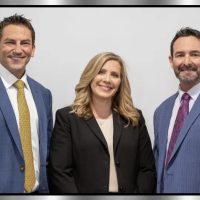Partnership Law: Four Examples Of Self-Dealing

In Florida, a business partnership is governed largely by the terms of the voluntarily-agreed upon partnership agreement. Though, Florida does have a partnership law statute. Under Florida Statutes § 620.8404, business partners owe each other a “duty of loyalty.” Self-dealing constitutes a breach of the duty of loyalty. What exactly is self-dealing? Broadly speaking, it occurs when a party with a fiduciary takes action for personal gain at the expense of the company/partnership. In this blog post, our Miami partnership dispute lawyers highlight four examples of self-dealing.
- Using Partnership Resources for a Direct Personal Benefit
One of the most flagrant examples of self-dealing is the use of (business resources) partnership resources as a manner for direct personal benefit. For instance, imagine that a business partnership had an account for travel-related expenses. Partners could “expense” certain qualifying travel. If one partner charged a personal vacation to the account that is an example of improper self-dealing. They are using their position for personal gain.
- Engaging With a Connected Company Without Making Proper Disclosures
One of the most common—and difficult to detect—types of self-dealing occurs when a partner does business with a company that they are connected with, without providing proper disclosures. As an example, imagine that a person is a partner in a financial services company in South Florida. The same individual also has a heavy interest in a commercial property investment company. They convince their business partner to rent out commercial space for the financial services company from the property investment company without ever telling their business partner. In effect, they are dealing with themselves and gaining an undisclosed personal benefit.
- Taking an Advantageous Personal Loan From Partnership Assets
Another example of self-dealing by a business partner occurs when they take advantageous personal loans directly from the partnership or backed up by assets owned/controlled by the partnership. Once again, the individual in question is using the assets of the partnership as whole for a personal benefit.
- Modifying the Structure of the Partnership in an Improper Manner
A business partner in Florida could potentially engage in improper self-dealing by modifying the core structure of the partnership in an unfair, unreasonable, or otherwise abusive manner. These types of self-dealing cases are highly fact-specific. A comprehensive inquiry is required to determine what exactly happened and how the partner did (or did not) use their insider position at the partnership to secure themselves an improper personal gain at the expense of the company and their business partners.
Get Legal Help From Our Miami, FL Partnership Law Attorney Today
At Pike & Lustig, LLP, our Florida partnership lawyers are skilled and experienced advocates for business owners. If you are locked in any type of partnership dispute over self-dealing, we are more than ready to help. Call us now to get a confidential appointment with an experienced attorney. From our legal offices in Miami, West Palm Beach, and Wellington, we represent business owners in partnership disputes throughout all of Southeastern Florida.
Source:
leg.state.fl.us/Statutes/index.cfm?App_mode=Display_Statute&Search_String=&URL=0600-0699/0620/Sections/0620.8404.html
